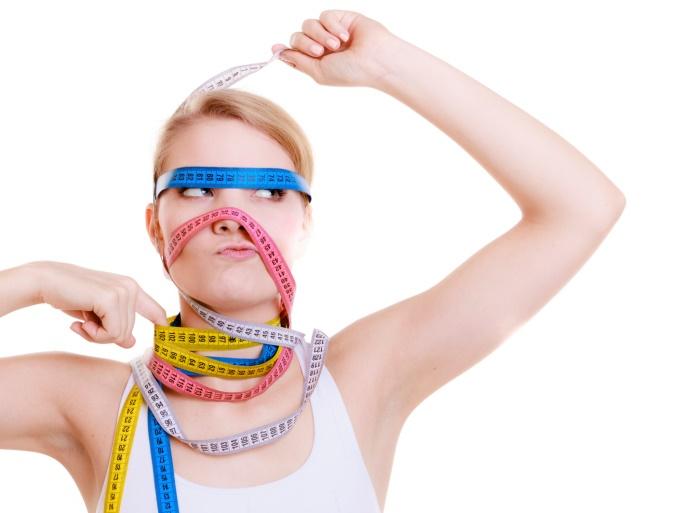
It's no secret that we live in a culture obsessed with weight loss. We are constantly talking about wanting to lose weight, how to lose weight, who's lost the most weight, and how perfect all our lives would be if we could lose just a little more. What we don't talk about as much? The nuances of the weight loss process, including the side effects of weight loss that are—gasp!—not all positive.
Over the course of the last year, I lost about 25 pounds. As someone who had never lost any amount of weight before, the whole process was new to me, but there were a few things about dropping dress sizes that really surprised me. For example . . .
1. Get ready for some backhanded compliments. Once your weight loss becomes noticeable, people are probably going to start making comments on it. Some of these comments are really nice. They might validate the hard work you've put into the process, or underline your newfound body confidence. But some of the "compliments" you'll receive are incredibly insulting. Don't be surprised if you hear things like, "Wow, you look so much better," or "I didn't want to say anything before, but you seemed really unhealthy." Umm . . . thanks?
2. Some people will treat you differently. One of the saddest revelations I gleaned from my weight loss experience? A few less (or more) pounds really does change the way people interact with you. As I lost weight, I noticed that my diet-focused friends suddenly wanted to discuss calorie-counting and gym schedules . . . and not much else. Some friends made nasty comments about my new eating habits and self-deprecating comments about their own, which made me want to spend less time with them. Post-weight loss, a male coworker started making fat jokes about overweight customers in my presence. I couldn't help but wonder if he would have stifled those comments if he knew me when I was bigger, or if I would have been one of his targets of ridicule. The crazy part of all of this is that I didn't even lose that much weight, and I still saw social consequences. A friend of mine who lost over 100 pounds told me that the hardest part of losing weight, for him, was seeing people treat him dramatically differently than they did when he was bigger, and not knowing who to trust as a result.
3. It's surprisingly easy to get obsessive. I started losing weight just by eating more intuitively and trying to forge a better connection with my body; I would listen carefully to my hunger and fullness signals and eat accordingly. Slowly, the pounds started coming off, and I felt healthy and happy about the way my body was changing. A few months later, I hit a plateau and started counting calories to break through it. That's when I stopped feeling healthy and happy and started feeling anxious, controlling, and obsessive instead. I spent way too much time frantically crunching numbers and feeling guilty and panicked when I'd gone over my daily allotment or eaten the "wrong" kind of food. I'm a pretty laid back person who had never really dieted before, so this obsessive streak came as a total surprise to me.
After talking to other friends who had lost weight, every single one of them said they'd experienced similar phases of obsession that had been hard to kick, even years later. If you're going to count calories, I highly recommend using it as a loose guideline to follow rather than a strict rule, and if you find yourself fixating on numbers, take a break and just listen to your body instead. Losing weight is never worth losing your sanity.
4. Your life won't change all that much when you hit your goal weight. We live in a culture that plays the "lose x amount of weight and your life will be perfect!" message on loop in every available medium. No matter how thoughtful and conscious your are during your weight loss process, there is probably a part of you that secretly believes there is a number on the scale that will unlock a hidden door to total happiness. Spoiler alert: That's not true.
I spent my whole life thinking if I could just lose 20 pounds, people would like me more, and I'd be more confident, beautiful, and successful. When I finally hit that magic number, confetti didn't fall from the ceiling. Inner peace didn't instantly wash over me. I was proud of myself for accomplishing my goal, I was in better shape, and clothes shopping was easier, but everything else . . . was pretty much the same. I was slightly smaller, but I was still me, with the same insecurities. If anything, I'm grateful that my weight loss exposed that "perfect life" fallacy, and forced me to do the emotional work that takes place on a much deeper level.
The bad news is losing weight won't fix all your problems, and it won't make you love yourself. The good news? You can start loving yourself whenever you want, no matter what your scale says. Why not start today?







